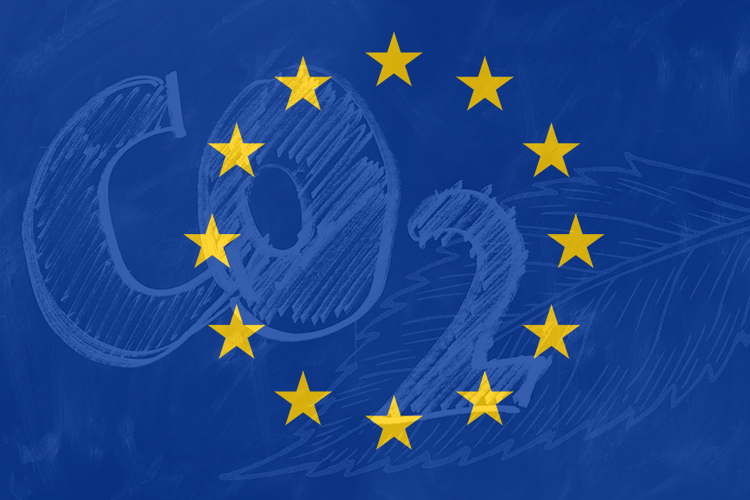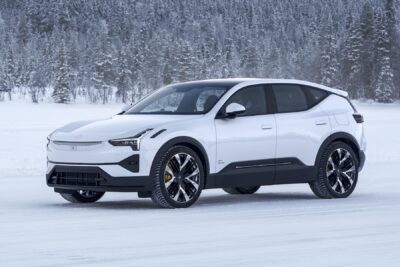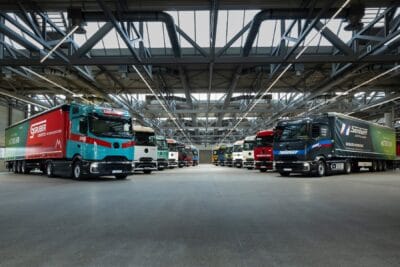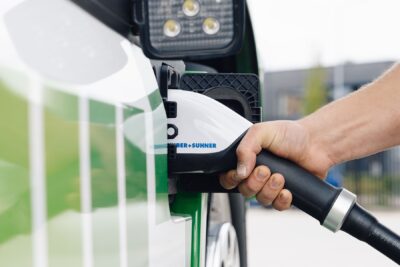EU states & parliament agree on stricter fleet CO2 emission standards
The EU states and the European Parliament have reached a political agreement on stricter CO2 emission standards for new passenger cars and light commercial vehicles, sealing the end for new cars with combustion engines from 2035. What impact the backdoor for e-fuels will have is currently unclear.
In detail, the agreement, which still needs to be formally rubber-stamped, calls for CO2 emissions reductions of 55 per cent for new passenger cars and 50 per cent for light commercial vehicles by 2030 compared to 2021. By 2035, CO2 emissions from new passenger cars and light commercial vehicles must fall by 100 per cent. This means that from 2035, only cars and light commercial vehicles that emit no CO2 during operation may be registered in the EU.
Just as important as the fact that the agreement reached by the EU negotiators with the parliamentarians still has to be formally adopted: In 2026, it should be possible to review the decision. According to the European Council’s communication, the agreement includes a “review clause to ensure that in 2026 the Commission thoroughly assesses progress towards the 100% emission reduction targets and the need to review these targets, taking into account technological developments, including with regard to plug-in hybrid technologies and the importance of a sustainable and socially just transition to zero emissions.” In other words, if some underlying conditions change by then, an adjustment of emission standards is also possible.
A theoretical little backdoor for internal combustion engines powered by so-called e-fuels does remain – but not within the framework of fleet limits: the EU Commission is asked to submit “a proposal, following consultations with stakeholders, for the registration of vehicles powered exclusively by CO2-neutral fuels after 2035, in accordance with EU law, outside the scope of the fleet standards and in line with the EU’s goal of climate neutrality,” according to the official communication.
To which vehicles does the e-fuels exemption apply?
“Outside the scope of the fleet standards” actually clarifies that a possible backdoor for e-fuels will not apply to new passenger cars and light commercial vehicles – because those fall under the fleet limits. For example, trucks, emergency vehicles and tractors are not part of the fleet limits system. If cars and LCVs with e-fuels powered by internal combustion engines were also to run outside the scope, further exemptions would have to be created for them.
In the past, however, within the German ruling government coalition alone, the Green party and the liberal party FDP had already interpreted such passages differently – for example, whether such an exemption also applies to passenger cars or only to vehicles that are already not covered by the fleet limits. It is currently not clear what the views are on this throughout Europe and how this request to the Commission will be interpreted.
However, the basic structure of the fleet limit values remains unchanged: Manufacturers can continue to market vehicles with internal combustion engines, but must pay a premium of 95 euros per gram of CO2/km above target per registered vehicle if their emissions target is exceeded in a given year.
Separate from the fleet limits, discussions on revising the Alternative Fuels Directive (AFIR) continue between the Council and Parliament. Last week, the EU Parliament agreed on its common position, calling for at least one charging station for electric cars every 60 kilometres along the EU’s main roads by about 2026.
The European Council is pleased with the agreement now reached – the Czech Republic currently holds the EU Council presidency. “This agreement will pave the way for the modern and competitive automotive industry in the EU,” said Jozef Sikela, Czech Minister of Industry and Trade. “The world is changing, and we must remain at the forefront of innovation. I believe we can take advantage of this technological transition. The envisaged timeline also makes the goals achievable for car manufacturers.”





0 Comments